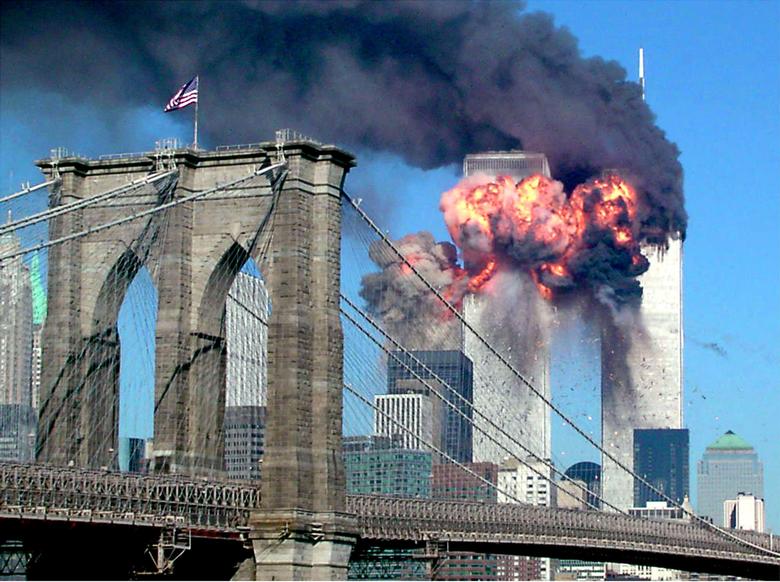Most doubted it would happen, but on Monday, August 30, 2021 the US withdrew its military, its nationals, and thousands of Afghani assistors, nearly twenty years after first sending US troops into Afghanistan – meeting an extended negotiated deadline for withdrawal.
What happens now? When Al Qaeda religious extremist terrorists brought New York’s World Trade Center crashing down, smashed a plane into the Pentagon, and narrowly failed a similar intended airplane strike on the White House on September 11, 2001, the simultaneous attacks caused shock waves around the US. 3,000 Americans died as a result of those attacks. A month later, Republican President George W. Bush, then in his first year in office, deployed troops to Afghanistan vowing to drive out the Taliban government that had sheltered the terrorist leader Osama bin Laden.
Thus began the longest international deployment of military in American history. And this week it ended. The US completed the largest airlift evacuation in world history. An operation initially fraught with miscalculation and mismanagement, images of chaos filled the airwaves during the month of August, and the August 31 deadline loomed as thousands waited just past the barbed wire, trying to get into the Kabul airport past the Taliban guards to board planes to safety.
The pullout was the result of a deal negotiated last year by the prior Trump administration with the Taliban to withdraw American troops by May, 2021. Trump secretly invited the Taliban to the Camp David presidential retreat on the actual 19th anniversary of 9/11 last year to seal it, but was talked out of it by advisors.
The deal signed in Doha that cut out the sitting, US-backed Afghan government, also included the release of 5,000 Taliban jihadists including the current Taliban leader. Although marked by chaos and disorganization, since the operation began on August 14, the US evacuated around 123,000 people, including 5,500 U.S. citizens and their families. A small number still remain, however.
Secretary Antony Blinken estimated that number as “under 200 and likely closer to 100” Americans who remain in Afghanistan and want to leave, and the administration has said it is committed to getting them out. President Biden has faced criticism from many Republicans for his handling of the withdrawal.
Sen. Mitt Romney (R-UT) blamed both the Trump and Biden administrations for bad decisions leading to the chaotic events that ravaged Afghanistan once the Taliban had taken over. Romney cited the Trump administration’s “negotiating directly with the Taliban, getting ready to invite them to Camp David, opening up a prison of 5,000 Taliban and probably ISIS-K individuals and letting them free.”
These decisions “led to what you're seeing and the danger that exists at the airport," he said. He also cited the Biden administration’s decision to close the Bagram Air Base. Yet ending America’s longest military intervention was bound to be ugly, according to experts.
The Taliban swept in with unexpected alacrity, in a matter of days brushing aside the Afghan military the US had trained for 20 years and bringing back their signature brutality after the pullout of the US’s 14,000 troops. They then started conducting door-to-door searches for journalists and others, especially women, and they set up checkpoints blocking even those Afghans with US green cards and visas from getting inside. The Afghan military “stood back and let them in,” according to Phyllis Benner, a fellow at the Institute for Policy Studies and author of Ending the U.S. War in Afghanistan.
“It was not about fighting for their country,” she said. “They were being asked to fight for a government . . . imposed by an outside occupier that created a government” modeled on the kind of government in the U.S. or Europe that failed to reflect Afghanistan’s traditional tribal politics and allegiances. One of the worst failings of the operation, said Benner, was that the US “did not open up its access for refugees, for asylum seekers, for the desperate people who may not in fact be in ultimately as great risk as they fear.”
In August, former President George W. Bush called on President Biden to take in more Afghan refugees and expedite the special visa process by “cutting the red tape.” That was easier said than done, since the Trump administration deliberately dismantled the systems use to vet and background check the potential evacuees, according to former administration officials, rendering the process more difficult and much longer.
The final tragedy was the suicide-bomb attack claimed by ISIS-K, a sworn enemy of the Taliban, that killed 13 US service members and hundreds of Afghans. After 9/11 many Americans blamed Muslims for the attack, igniting an American Islamophobia that persists today. As the anniversary of 9/11 approaches, many Americans say they don’t want Afghan refugees or even Afghans who worked with the US military entering the US. Yet, Muslim immigrants have contributed significantly to the fabric of US society, its economy, and its diversity.
It is Afghanistan that now faces a brain drain from its society as its intellectual and educated workforce and aspiring youth flee Taliban retribution. Meanwhile, the nation that waged the failed war on the Taliban for 20 years is now abandoning that country to the same brutal regime that precipitated its intervention.
One of the main concerns is turning the clock back on women’s rights in Afghanistan. Although the Taliban have said they will “respect them,” they have already taken actions that contradict such assurance, including telling women to stay home and signaling the reinstatement of the head to foot burka for women in public, through which they can only peer out through an embroidered lattice-work face covering.
On Thursday, dozens of Afghan women took to the streets in Herat, western Afghanistan, in a rare public demonstration protesting the Taliban’s empty promises to protect their rights, and chanting “Don’t be afraid, don’t be afraid! We are together!” Most Afghani women are afraid and seem to have little hope, judging by social media.
UN High Commissioner for Human Rights Michele Bachelet stated that “a fundamental red line will be the Taliban's treatment of women and girls [and] their rights to liberty, freedom of movement, education, self-expression and employment, guided by international human rights norms.”






